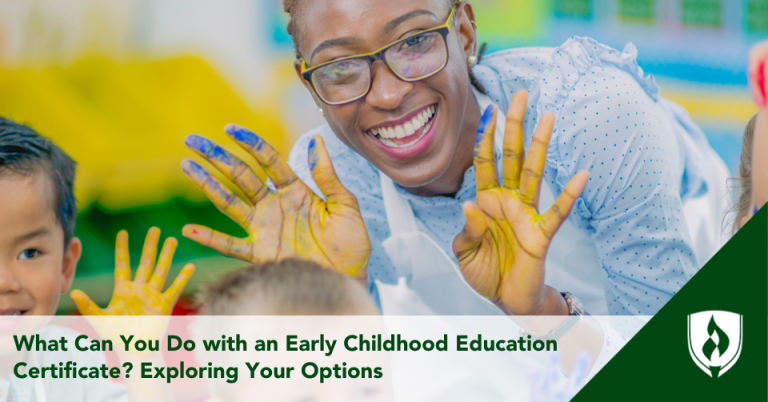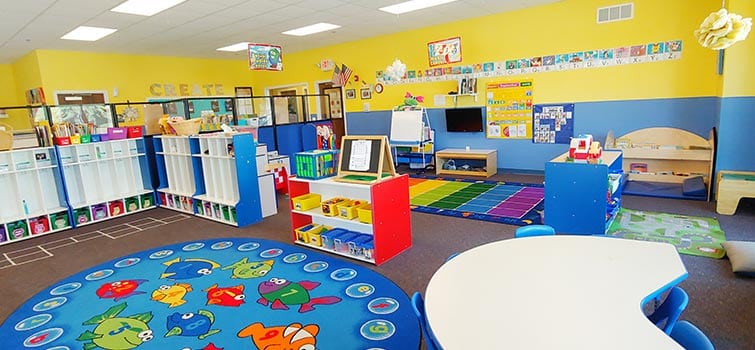How to Become an Early Childhood Educator: Your Ultimate Guide
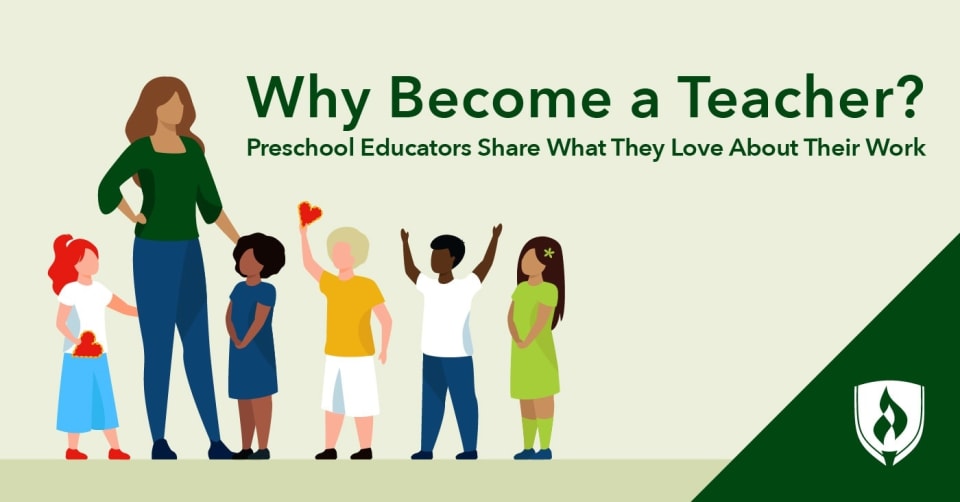
To become an Early Childhood Educator, you need at least an associate’s degree in Early Childhood Education or a related field. Gain experience through internships or volunteering at childcare centers.
Early Childhood Educators play a crucial role in shaping young minds and preparing children for future success. By pursuing the necessary education and gaining practical experience, you can embark on a fulfilling career in this rewarding field. Whether you choose to work in a preschool, daycare, or elementary school setting, your impact on children’s development will be invaluable.
Keep reading to discover the steps needed to become a successful Early Childhood Educator.
Exploring The Role Of An Early Childhood Educator
Exploring the Role of an Early Childhood Educator
Key Responsibilities
As an early childhood educator, your primary responsibility is to provide a nurturing and stimulating environment for young children to learn and grow. This includes developing and implementing age-appropriate curriculum, facilitating play-based activities, and fostering social, emotional, and cognitive development. Additionally, you will need to observe and assess the children’s progress, communicate regularly with parents, and ensure the safety and well-being of all children under your care.
Qualifications And Skills Required
To excel in this role, a strong educational foundation is essential. This typically involves obtaining a degree in early childhood education or a related field, along with relevant certifications such as CPR and first aid. Additionally, effective communication, patience, creativity, and the ability to work collaboratively with colleagues and parents are crucial skills for success in this field. A genuine passion for working with young children and a deep understanding of child development are also highly valued.
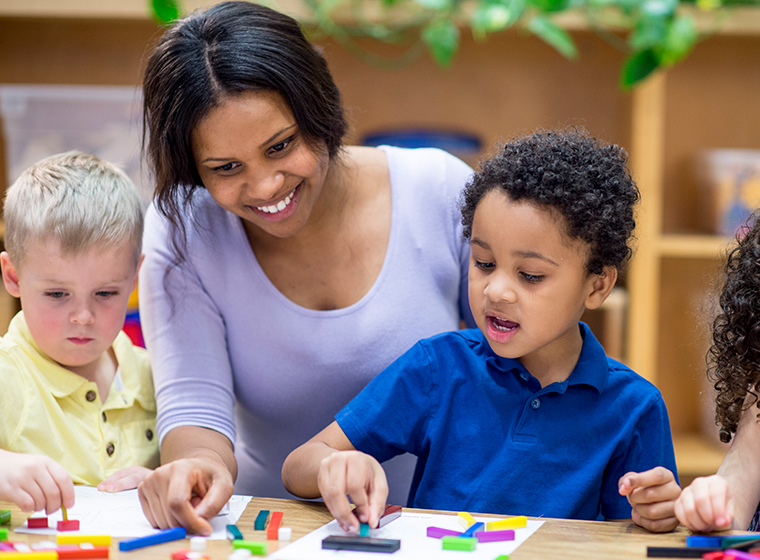
Credit: www.ontario.ca
Educational Path To Becoming An Early Childhood Educator
Becoming an early childhood educator is a fulfilling career path that requires a combination of education and practical experience. The educational path to becoming an early childhood educator involves choosing the right education program and gaining practical experience in a real-world setting. By following these steps, aspiring educators can equip themselves with the necessary knowledge and skills to make a positive impact on young children’s lives.
Choosing The Right Education Program
When pursuing a career in early childhood education, it’s crucial to select the right education program. Look for accredited institutions that offer courses specifically tailored to early childhood education. These programs typically cover topics such as child development, curriculum planning, and classroom management. Ensure that the curriculum aligns with your career goals and provides a comprehensive understanding of the field.
Gaining Practical Experience
Acquire practical experience by participating in internships or volunteer opportunities at childcare centers, preschools, or elementary schools. This hands-on experience allows aspiring educators to apply their knowledge in a real-world setting, gain insights into effective teaching methods, and develop essential skills for working with young children.
Understanding Licensing And Certification
Understanding licensing and certification is crucial for anyone considering a career as an early childhood educator. Licensing and certification ensure that you meet the necessary requirements and standards to work in this field, and they vary by state. Here’s what you need to know about state requirements and certification options.
State Requirements
Each state has its own specific licensing requirements for early childhood educators. These requirements typically include completing a certain number of college credit hours in early childhood education, gaining practical experience through student teaching or internships, and passing a background check. Some states may also require additional coursework in areas such as child development, health, and safety.
Certification Options
There are various certification options available for early childhood educators, including the Child Development Associate (CDA) credential, associate’s and bachelor’s degrees in early childhood education, and state-specific certifications. The CDA credential is a widely recognized certification that demonstrates competency in the field. Pursuing higher education in early childhood education can also lead to more advanced certification and career opportunities.
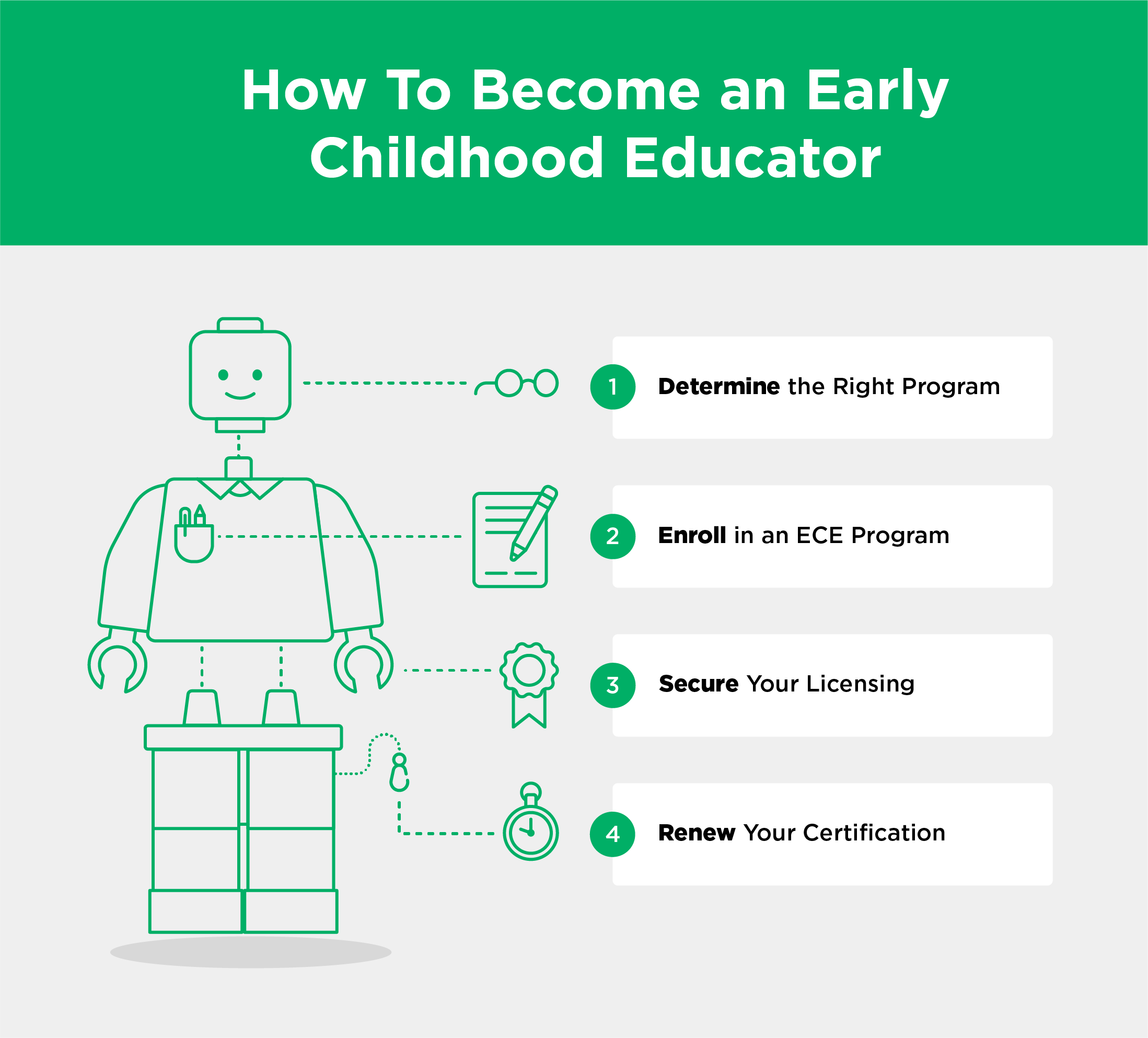
Credit: www.robertsoncollege.com
Building A Career As An Early Childhood Educator
Building a Career as an Early Childhood Educator can be a rewarding and fulfilling journey for those passionate about nurturing young minds and shaping the future. Whether you’re just starting out or looking to advance in your career, there are various paths and opportunities available in this field.
Job Prospects And Growth
Early childhood education is a growing field with promising job prospects. With an increasing focus on the importance of early childhood development, the demand for qualified educators continues to rise.
According to the Bureau of Labor Statistics, the employment of preschool teachers is projected to grow by 2% from 2019 to 2029, adding over 24,000 new jobs. This growth is driven by the emphasis on early childhood education and the expansion of public pre-K programs.
Advancement Opportunities
As an early childhood educator, there are various advancement opportunities to consider.
- Obtaining a bachelor’s degree in early childhood education can open doors to higher-paying positions and leadership roles within educational institutions.
- Specializing in a specific area such as special education, curriculum development, or administration can lead to advanced career opportunities.
- Continuing education and professional development can also enhance your skills and qualifications, paving the way for career growth and advancement.
Navigating Challenges In Early Childhood Education
Early childhood education comes with its set of challenges. As an educator, it’s essential to be well-equipped to handle these obstacles effectively.
Dealing With Behavioral Issues
Behavioral issues are common in early childhood settings. Setting clear boundaries and consistently enforcing them helps in managing such challenges.
Supporting Children With Diverse Needs
Each child is unique, and some may have diverse needs. Providing individualized support and creating inclusive environments are crucial in helping every child thrive.
Embracing Technology In Early Childhood Education
Discover the path to becoming an early childhood educator by embracing technology in education. Equip yourself with essential skills to navigate the digital landscape and enhance learning experiences for young minds. Embracing technology can revolutionize the way we educate and prepare children for the future.
As we move further into the digital age, technology is becoming more prevalent in all aspects of our lives, including education. Early childhood education is no exception. Incorporating technology into the classroom can enhance the learning experience for young children and set them up for future success. In this post, we will explore the benefits of tech integration and best practices for implementation.Benefits Of Tech Integration
Integrating technology into early childhood education has several benefits. Here are a few:- Improved engagement: Technology can make learning more interactive and engaging for children, keeping them interested and motivated.
- Personalized learning: With technology, teachers can create customized learning experiences for each child based on their individual needs and abilities.
- Enhanced skills development: Technology can help young children develop important skills such as critical thinking, problem-solving, and creativity.
- Preparation for the future: As technology continues to play a significant role in society, exposing children to it at a young age can prepare them for future success.
Best Practices For Implementation
While incorporating technology into early childhood education can have many benefits, it’s important to do so in a responsible and effective way. Here are some best practices for implementation:- Choose appropriate technology: Not all technology is suitable for young children. Choose age-appropriate tools that align with your learning objectives.
- Provide guidance and supervision: Children will need guidance and supervision when using technology to ensure they are using it safely and effectively.
- Integrate technology into existing curriculum: Technology should be used to enhance existing curriculum, not replace it. Ensure that technology is being used to support learning objectives.
- Monitor usage and progress: Regularly monitor how technology is being used and the progress children are making. Adjust as needed to ensure it is having a positive impact on learning.
Promoting Parental Involvement And Communication
In the field of early childhood education, promoting parental involvement and communication plays a vital role in a child’s learning and development. It is essential for educators to establish a collaborative relationship with parents to ensure the child’s success.
Importance Of Parent-teacher Collaboration
Collaboration between parents and teachers is crucial for supporting children’s holistic growth. When parents and teachers work together, they can create a unified approach to support the child’s learning journey.
Effective Communication Strategies
Effective communication is key to fostering a positive relationship between parents and teachers. Using clear and concise language helps in conveying information effectively.
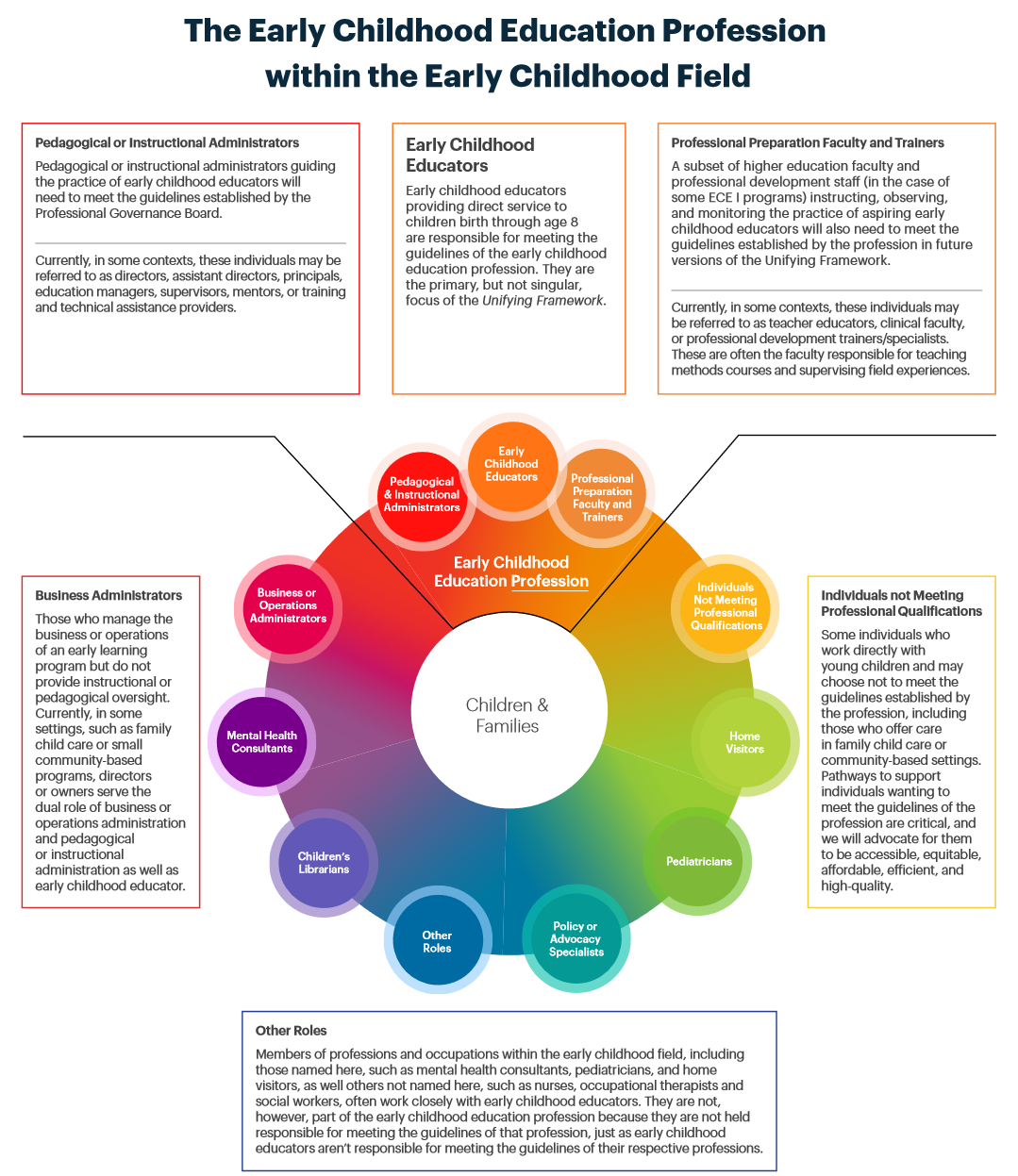
Credit: www.ncicdp.org
Ensuring Personal Well-being And Professional Development
Ensuring personal well-being and professional development is crucial for early childhood educators to thrive in their roles and provide the best possible care and education for young children. By prioritizing self-care and continuous learning, educators can enhance their effectiveness, resilience, and overall job satisfaction.
Self-care Tips For Educators
Self-care is essential for maintaining a healthy work-life balance and preventing burnout. Here are some practical self-care tips for early childhood educators:
- Prioritize regular exercise and physical activity to reduce stress and boost energy levels.
- Allocate time for relaxation and hobbies to unwind and recharge outside of work hours.
- Seek support from colleagues, friends, or professional networks to share experiences and alleviate emotional burdens.
- Practice mindfulness and meditation to promote mental well-being and emotional resilience.
- Set clear boundaries between work and personal life to maintain a healthy separation and prevent overworking.
Continuous Learning And Growth
Early childhood education is a dynamic field that continuously evolves, making ongoing learning and growth imperative for educators. Here are strategies to support continuous professional development:
- Engage in regular training workshops, seminars, and conferences to stay updated with the latest teaching methodologies and educational trends.
- Pursue further education or specialized certifications to expand knowledge and expertise in specific areas of early childhood education.
- Participate in peer observations and constructive feedback sessions to enhance teaching practices and classroom management skills.
- Utilize online resources, webinars, and educational platforms to access a wide range of educational materials and resources for self-improvement.
Frequently Asked Questions
How Do I Become An Early Childhood Educator In The Us?
To become an early childhood educator in the US, you need a high school diploma and a relevant degree such as in early childhood education. Gain experience through internships and complete state licensure requirements. Continuing education and professional development are also important.
Is It Hard To Be An Early Childhood Educator?
Being an early childhood educator can be challenging but also rewarding. It requires patience, creativity, and a passion for working with young children. With the right training and support, it can be a fulfilling career.
What Are The Requirements To Be A Preschool Teacher In Texas?
To be a preschool teacher in Texas, you need a high school diploma, Child Development Associate (CDA) credential, or Associate’s degree in Early Childhood Education. You must also pass a background check and have experience working with young children.
What Does It Mean To Be An Early Childhood Educator?
An early childhood educator is a professional who provides care and education for children from birth to age eight. They create a safe and nurturing environment where children can learn and develop through play, social interaction, and educational activities. Their role is to foster children’s physical, cognitive, social, and emotional development to prepare them for future success.
Conclusion
In closing, pursuing a career as an early childhood educator can be a fulfilling and rewarding path. By acquiring the necessary qualifications, gaining practical experience, and staying updated on best practices, you can make a positive impact on the lives of young children.
Embracing this role with passion and dedication will contribute to the growth and development of future generations.
Lorem Ipsum is simply dummy text of the printing and typesetting industry. Lorem Ipsum has been the industry’s standard dummy text ever since the 1500s, when an unknown printer took a galley of type and scrambled it to make a type specimen book.

